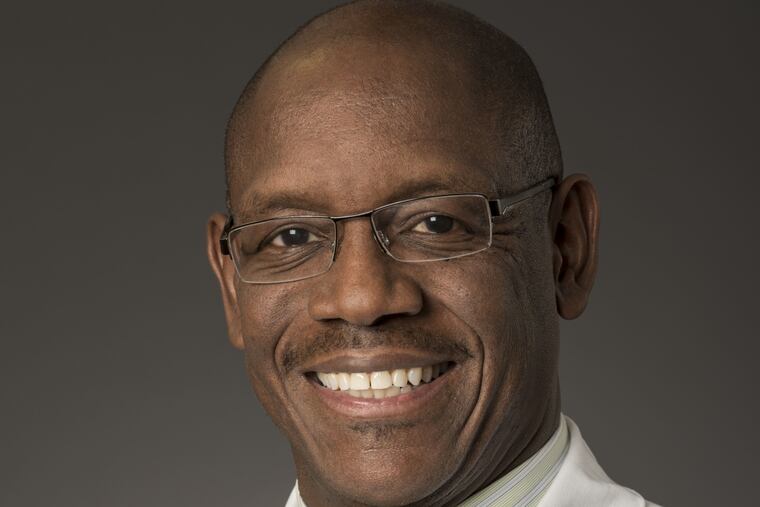A prominent Black surgeon at Jefferson Abington was mistaken for a valet. He says it’s a common experience.
In the New England Journal of Medicine, Orlando Kirton wrote about how Black men are judged for the color of their skin.

Orlando Kirton was wearing the same type of outfit he always wears for work as the chair of surgery at Jefferson Abington Hospital: a crisp white shirt, blazer, and bow tie.
But as he waited for an Uber ride outside his hotel at a recent national medical conference, he was startled when a man approached him with a ticket in his hand.
“Can you get my car?” asked the man, who was white. “Aren’t you the valet?”
Kirton, who is Black, described the experience in a March 2 essay in the New England Journal of Medicine.
He co-wrote the piece with fellow Black surgeon Selwyn O. Rogers, who had a similar experience at the October conference in San Diego, a meeting of the American College of Surgeons.
Rogers, the founding director of the University of Chicago Medicine Trauma Center, was getting ready to lead a panel discussion about social and environmental factors that can affect the success of surgery. As he sat at the desk, wearing a white shirt, jacket, and tie, he was asked whether he was the audiovisual technician.
In their essay, the two Harvard-trained surgeons said it was common for them to be judged by the color of their skin, as it is for millions of other Black men.
“We have seemingly climbed the ladder of meritorious success,” they wrote. “Yet we are constantly reminded that we have not traveled a great distance as Black men in the United States.”
Kirton and Rogers said they were fortunate that their childhoods enabled them to pursue careers in medicine, but lamented that so many of their counterparts do not have those advantages.
“Why is there an often impenetrable societal ceiling of low intellectual expectations?” they wrote. “The parallel is powerful between the Black professional mistaken for a valet and a young Black high school or college student recognized only for his athletic skill.”
Kirton was not immediately available for an interview. Read his full essay here.